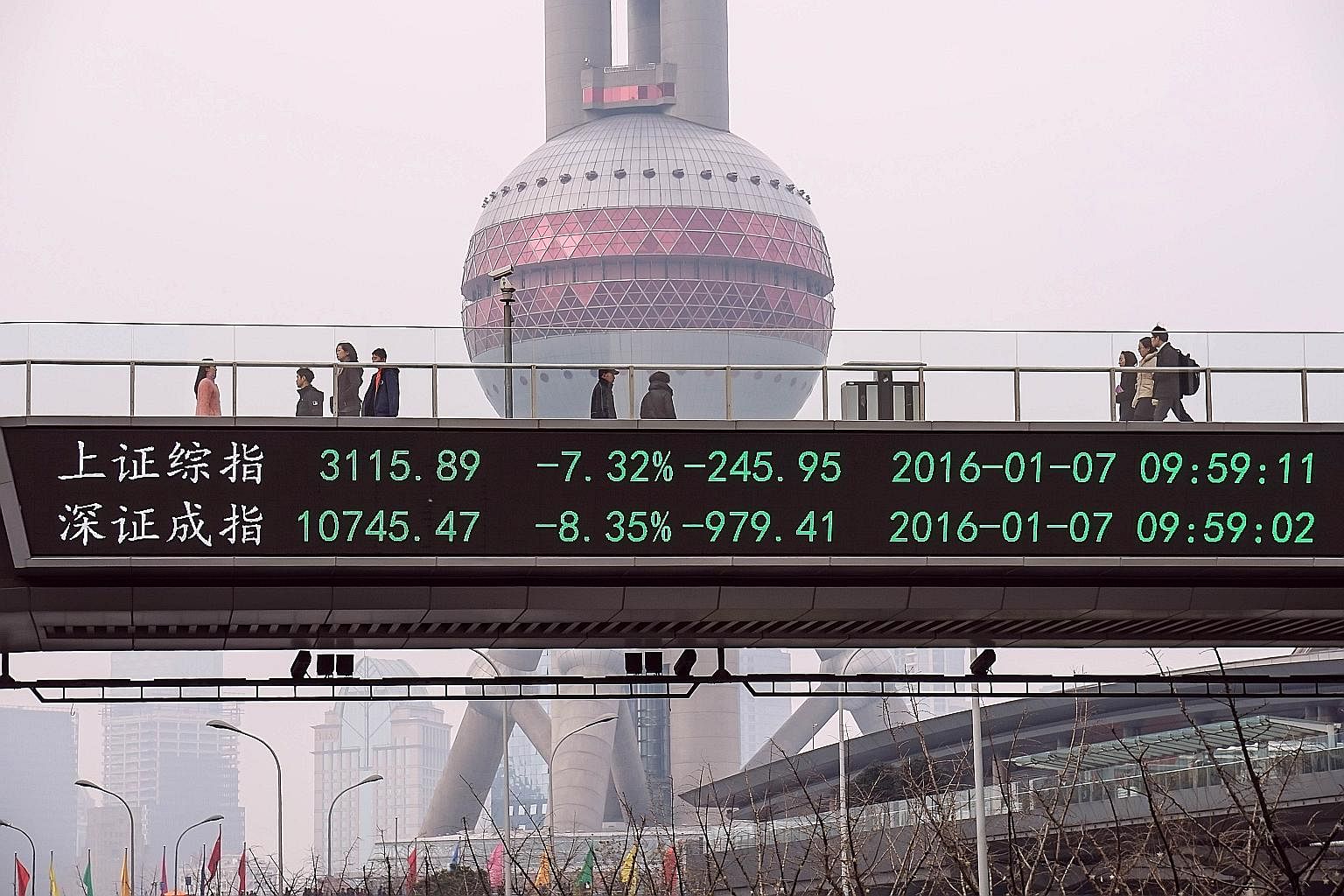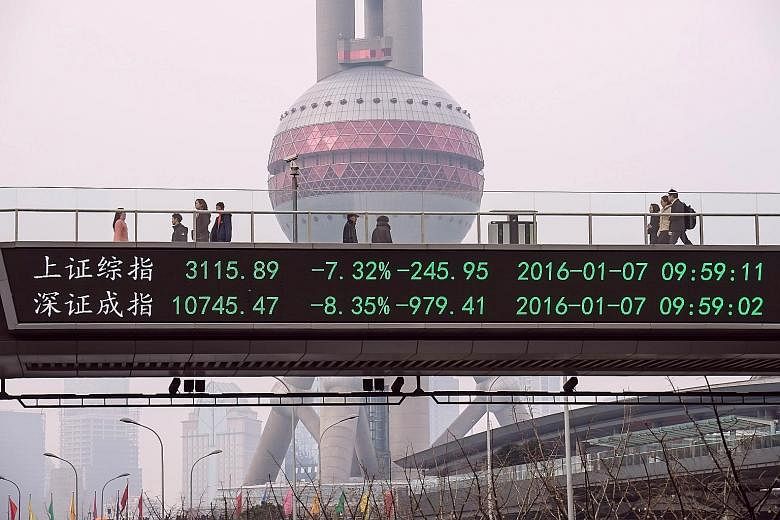The removal of China's securities chief marks a rare dismissal of a senior official in a country where underperforming leaders are usually shuffled out quietly.
Coming after the Communist Party introduced a demotion system among cadres last year, the move is possibly an attempt to improve accountability and better reflect public unhappiness - but it still lacks transparency, analysts told The Straits Times.
China's leaders replaced China Securities Regulatory Commission chairman Xiao Gang, 57, with Agricultural Bank of China chief Liu Shiyu, 54, last Saturday following a year of stock market turmoil that battered investor confidence. The bursting of the equities bubble wiped almost US$5 trillion (S$7 trillion) off the Shanghai and Shenzhen bourses, triggering a government rescue and a temporary ban on initial public offerings.

"It's about being more accountable to the public," said Chinese Academy of Governance political scientist Xu Yaotong. "Many people were unhappy about the market turbulence and wanted someone held responsible."
The statement announcing Mr Xiao's removal did not say where he was headed next. High-ranking Chinese officials are not usually dismissed so publicly unless they are embroiled in a corruption scandal or factional power struggle.

As the old system did not allow demotions unless the law or party rules were broken, it meant incompetent officials sometimes stayed in their positions a long time.
A "high-quality ranking system must be established to create a clean political environment", the new regulation said.
Although these are moves in the right direction, analysts say measures aimed at improving governance in China must be accompanied by more transparency for a proper system to take root.
-
Dismissed officials
-
Xiao Gang, 57

Appointed China Securities Regulatory Commission chairman in 2013, Mr Xiao was heavily criticised for failing to head off a heavily leveraged stock market bubble that began forming in 2014.
When the markets crashed in the middle of last year, the government tried to prop up the markets but failed. A circuit-breaker mechanism introduced last month appeared to induce market sell-offs instead of controlling them. Mr Xiao was dismissed last Saturday.
-
Meng Xuenong, 66

Three months into his post as mayor of Beijing, Mr Meng was sacked in April 2003 for covering up the severity of the severe acute respiratory syndrome (Sars) epidemic in the city.
He was appointed Shanxi governor in 2008, only to be forced to resign the same year, when he was accused of blocking media coverage of a deadly mudslide that killed more than 250 people.
-
Zhang Wenkang, 75

Mr Zhang was sacked as health minister in April 2003 for his handling of the Sars outbreak in China, where the deadly respiratory disease originated.
Chinese officials only belatedly admitted to the scale of the epidemic, which spread to 37 countries in nine months and caused almost 800 deaths worldwide.
In Mr Xiao's case, for instance, Chinese financial markets expert Fraser Howie noted that while the government's move to "draw a line under last year's fiasco" will restore confidence, it remains a mystery why it took so long to remove him.
The time lag led to constant speculation about his future since last summer's stock market crash. Last month, the authorities quashed rumours that Mr Xiao had offered to resign after the failed introduction of a circuit-breaker mechanism.
The timing of his dismissal has been linked to this week's meeting of Group of 20 finance ministers and the annual sessions of China's Parliament and its advisory body next week.
"Critics are asking the government to be more open about the reasons for his removal," Dr Xu said. Mr Xiao's dismissal was announced in a brief two-paragraph statement.
In the absence of an explanation, several Chinese commentaries have expressed sympathy for Mr Xiao's "difficult job".
His successor will also have to battle the intervention in China's markets by the government and speculative activities by state-owned enterprises, noted East Asian Institute senior research fellow Chen Gang. "The dismissal may win the government favour among the public," he said. "But instituting accountability goes beyond sacking officials."


